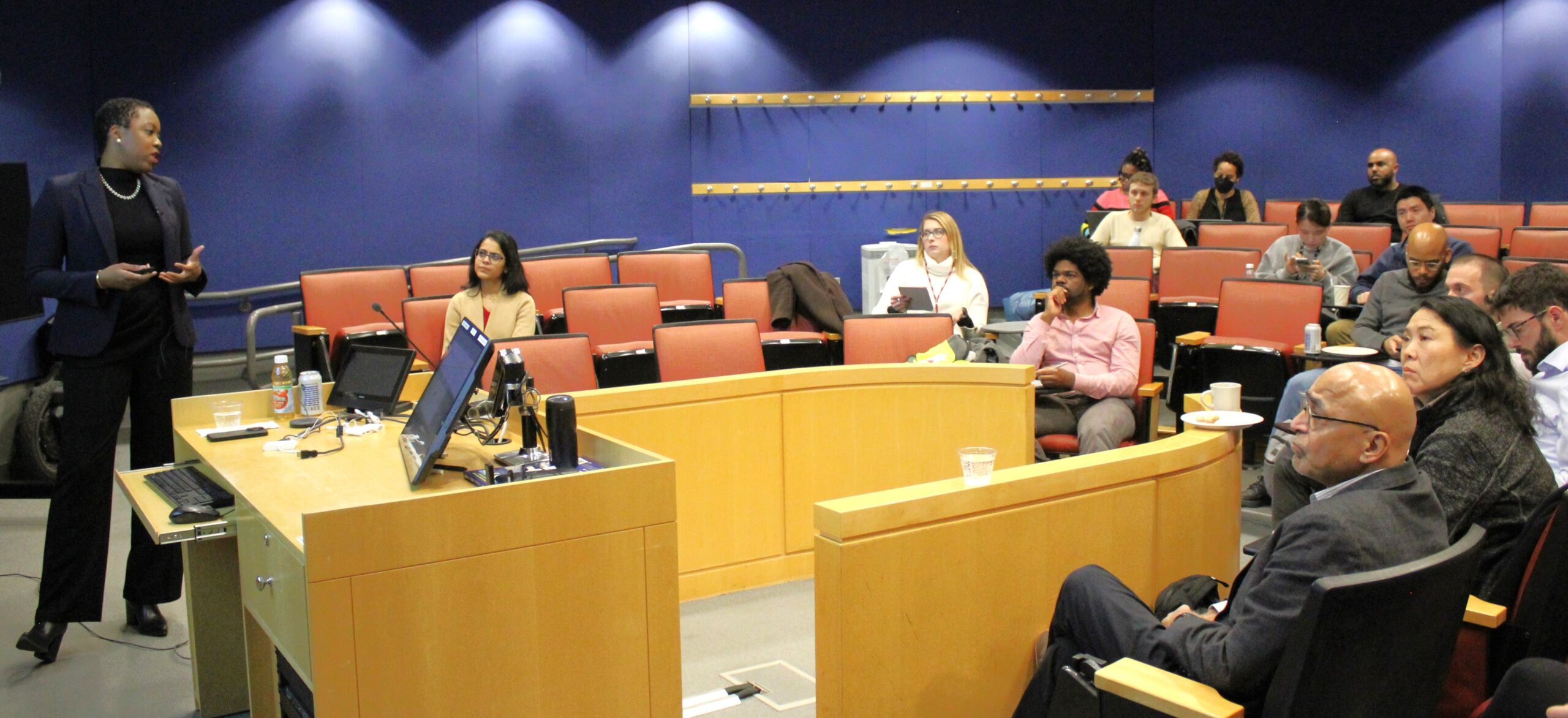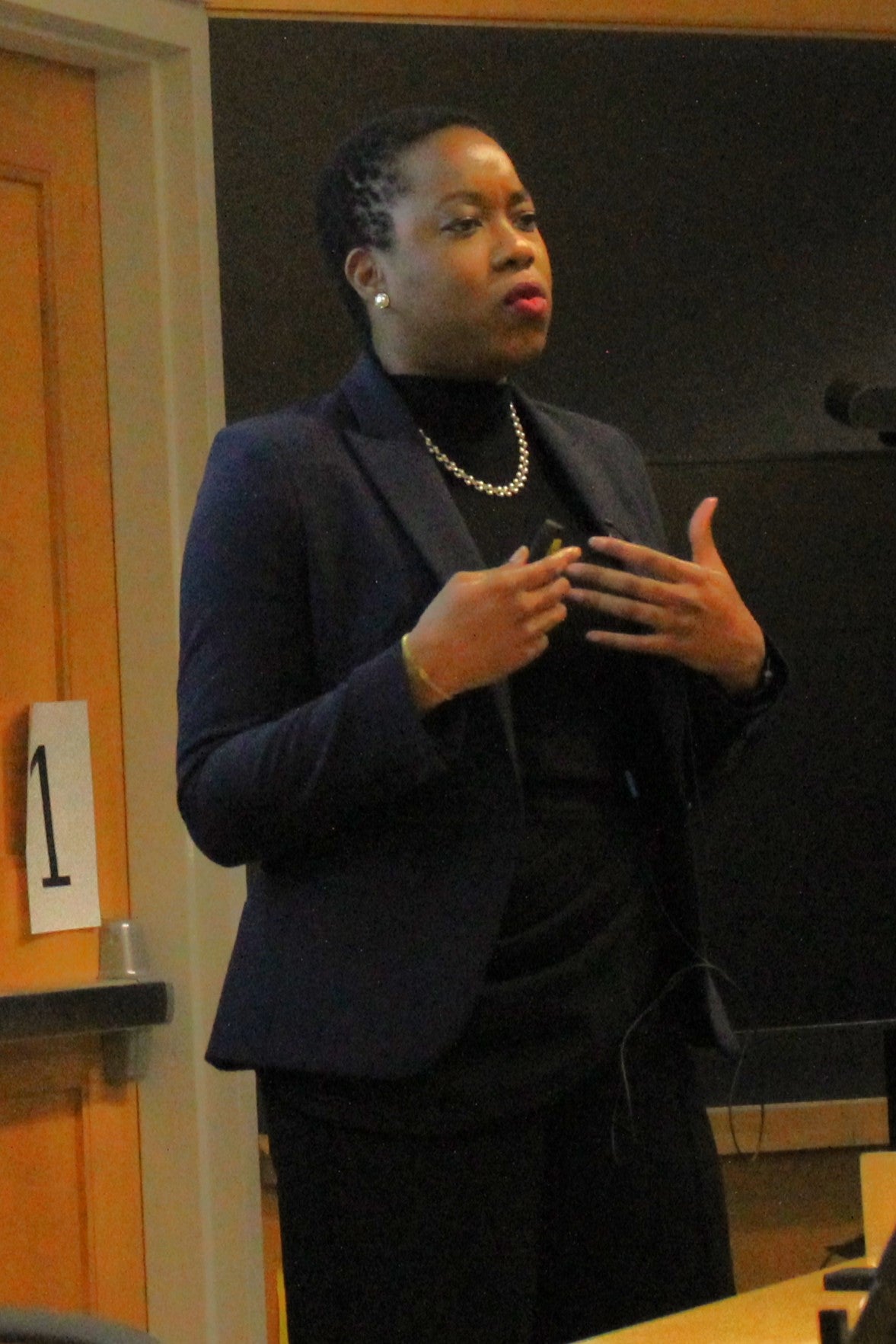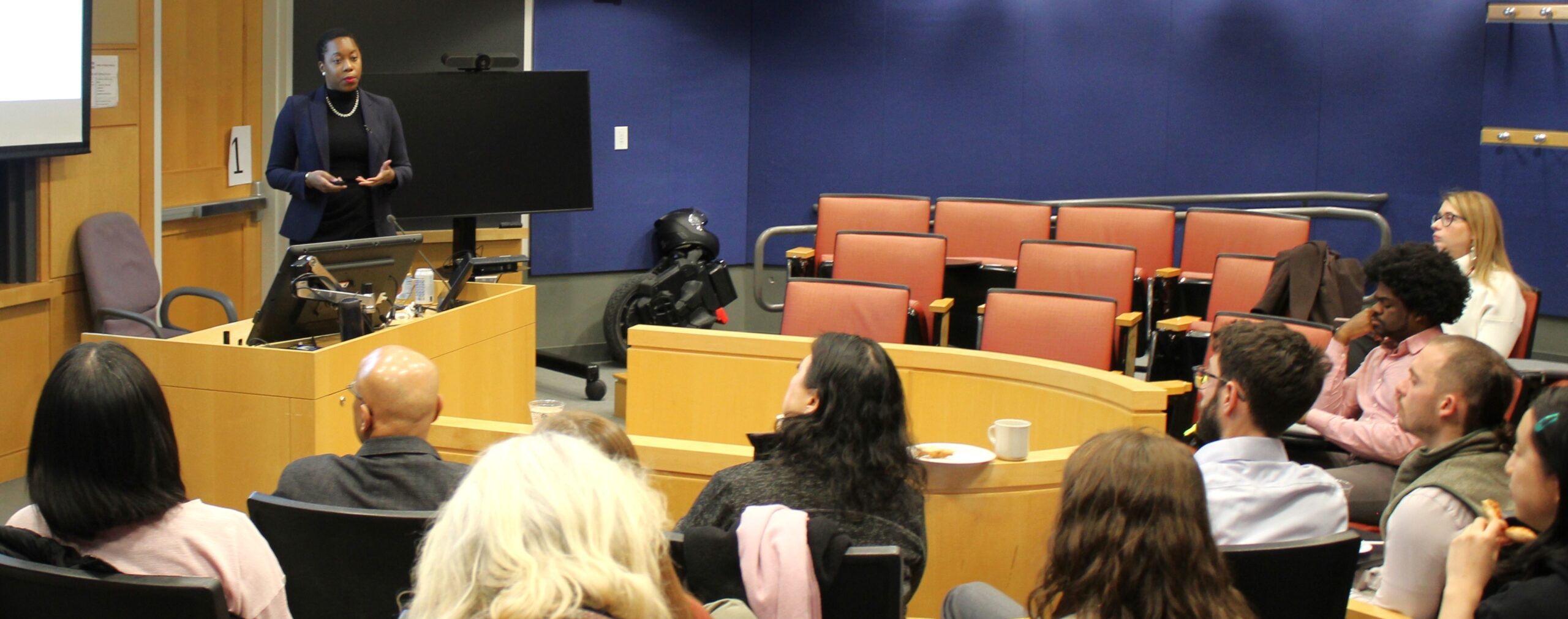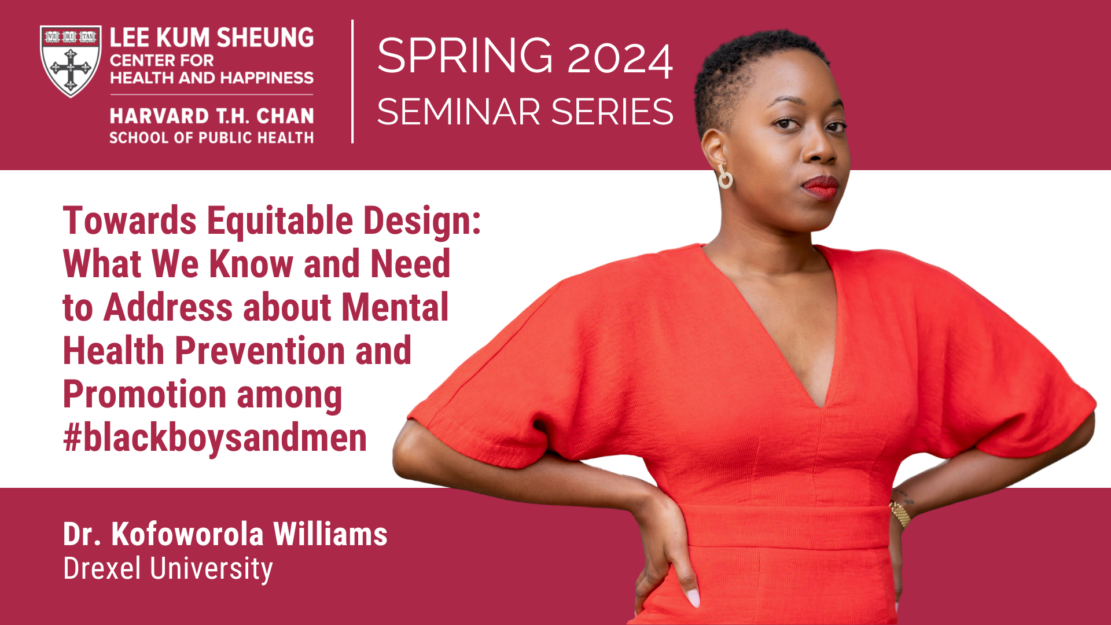On February 21st, the Center hosted a seminar titled “Towards Equitable Design: What We Know and Need to Address about Mental Health Prevention and Promotion among #blackboysandmen.” The seminar was presented by Dr. Kofoworola D.A. Williams, a social and behavioral scientist and mental health disparities investigator with an extensive background in public health and health behavior change theory. Dr. Williams serves as an Assistant Professor in the Department of Community Health and Prevention at Dornsife School of Public Health as part of the Drexel FIRST program.
The Problem: Mental Health Crisis Among Black Boys and Men

Dr. Williams’ seminar turned a spotlight on an ongoing crisis: rising suicide rates among Black boys and young, Black men. Suicide is the third leading cause of death for this group, according to a 2017 report by the Center for Disease Control (CDC), and the numbers are increasing. Further, CDC data indicates that over the last two decades, rates of death by suicide increased by 25.3% among Black men. A 2019 study shows that during the same period, suicide attempts by Black adolescents rose by 73%, and rates of injury by suicide attempt rose by 122% among Black adolescent boys.
It is crucial that we address this public health emergency; but unfortunately, the suicide prevention field has often overlooked Black men. This is a particular concern because, as Dr. Williams stated, referencing this article, “Black men are continuously targeted by systems of power, oppression, and inequities that increase their risk of poor mental health.” Indeed, studies show that racial discrimination is associated with increased depressive symptoms and higher levels of suicide ideation in Black men.
Dr. Williams’ research focuses on Black male college students, who are at higher risk of experiencing poor mental health due to stressors including, but not limited to, racial discrimination, the transition to adulthood, social constructions of masculinity, and financial struggles. So far, there has been limited research conducted for this demographic. To address this knowledge gap, Dr. Williams conducted a study on depression and anxiety among 681 Black male college students, publishing her findings in 2021. She found a high prevalence of negative mental health symptoms among the students, with 58% experiencing symptoms related to anxiety and 84.5% experiencing symptoms related to depression. Despite this, only 20.4% of Black male students utilized college counseling services, as compared to 37.76% of White male students. The study also found that stress, financial struggles, and cannabis use were associated with increased risk of anxiety and depression, while religiosity was associated with lower levels of negative mental health symptoms.
When Dr. Williams asked Black men why they didn’t seek help, she found that the biggest barriers were lack of trust and representation, namely, the discomfort in engaging with counselors who did not look like them. A common reflection centered on comments such as, “I’m a Black man on this campus. They’re a White woman. They’re not going to know what I’m going through.”
The Solution: Human-Centered Digital Mental Health Interventions

Currently, many resources for mental health support are not accessible by Black men because they are neither culturally relevant nor suited to their preferences. To support the mental health of Black men, Dr. Williams stated, “it’s critical that we explore other avenues to promote access.” Her avenue of choice is digital mental health interventions, tailored to Black men’s preferences and needs.
Studies show that digital health interventions can be effective in reducing mental health symptoms, addressing health disparities, and promoting health equity. These digital health interventions represent a cheaper alternative to therapy and decreased stress for clinicians, encourage connection among users, and promote increased accessibility and convenience. They are particularly well suited to the preferences of Black individuals, many of whom are very digitally active. According to the Pew Research Center, 84% of Black individuals own a smartphone, 82% are on at least one social media site, and 65% use these platforms daily.
Dr. Williams emphasized the importance of developing interventions using human-centered design, a framework which places future users and stakeholders at the center of and throughout the design process. This allows the developers to draw upon users’ lived experiences, knowledge, and perspectives to more accurately and thoughtfully address factors that relate to stigma, promote relatability, and ultimately create more accessible, useful, and equitable systems of care.
To test the waters for the creation of a new digital mental health intervention, Dr. Williams conducted interviews with eleven Black male students at two universities in the Midwestern US. She learned that participants were interested in having social media and digital technologies to support their mental health, and that relatability in the context of representation was a key factor. Participants wanted to see other Black men engaging in mental health support strategies, and to receive recommendations for stress relief that had been proven effective for Black men.

Dr. Williams’ next steps on the road to developing her own digital mental health intervention will include “prototyping and testing with empathy.” She intends to continue working with Black men, conducting activities such as co-design workshops and usability testing sessions to develop and finalize intervention components. Dr. Williams is also in the process of building partnerships with minority-serving community organizations in Philadelphia, which she hopes will also take part in the design process.
Informed by her research findings, Dr. Williams plans for her digital mental health intervention to address stressors such as financial strain and masculine norms, assist with the management of symptoms such as anger and social isolation, and create peer support opportunities. She intends to build this intervention with a diverse team and a focus on cultural inclusivity.
As the seminar drew to a close, Dr. Williams emphasized the critical importance of continued research centered on the mental health of Black men. “It is unlikely that we will ever achieve health equity for Black men if we do not better understand their mental health needs and experiences,” she argued. She concluded by referencing this paper, stating that, “It is important that we lift up work that incorporates diverse perspectives of Black males in order to create prevention efforts that promote equity.”
WATCH THE SEMINARDisclaimer: Speakers’ remarks are based on their own scholarship and experience. As such, they speak for themselves, not for Harvard.
Written by Ayla Fudala, Center Communications Coordinator


You must be logged in to post a comment.